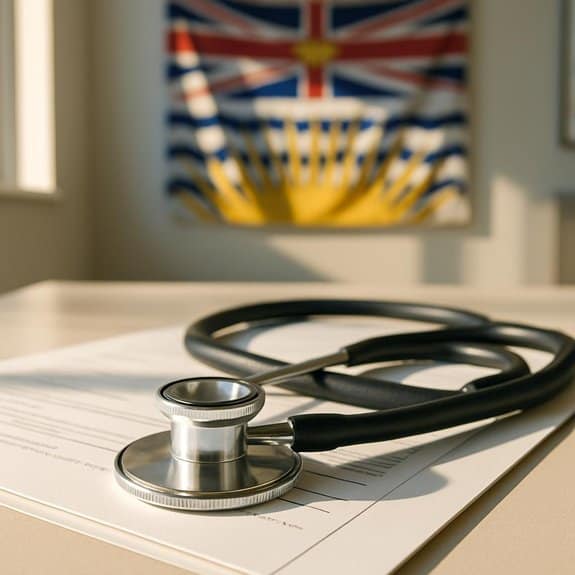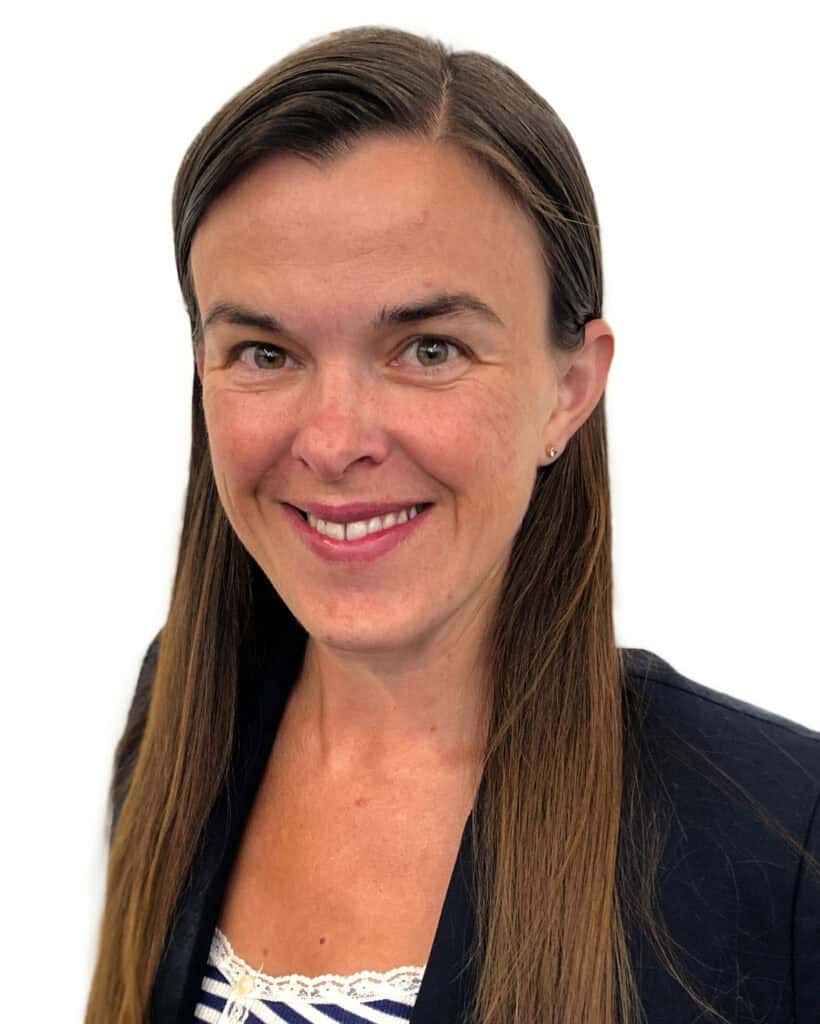
BC’s Health Professions and Occupations Act (HPOA) replaces the Health Professions Act on April 1, 2026, fundamentally changing healthcare regulation in British Columbia. You’ll face mandatory cultural safety training, expanded reporting duties, and a shift from “registrant” to “licensee” status. The government now handles disciplinary decisions through the new HPOROO oversight office, while appointed boards replace elected ones. These changes prioritize public safety over professional interests, requiring you to adapt to stricter accountability standards and anti-discrimination measures that’ll reshape your practice.
Overview of the Health Professions and Occupations Act (HPOA)
When the Health Professions and Occupations Act (HPOA) comes into force on April 1, 2026, it’ll fundamentally transform how British Columbia regulates healthcare professionals.
This modernized legislation replaces the current Health Professions Act and creates a unified regulatory framework designed to enhance public safety and address systemic discrimination within healthcare.
You’ll experience significant changes as a healthcare practitioner. The HPOA emphasizes cultural safety, anti-racism measures, and reconciliation with Indigenous peoples.
Healthcare practitioners will navigate transformative changes as the HPOA prioritizes cultural safety, anti-racism initiatives, and meaningful Indigenous reconciliation efforts.
It establishes the Health Professions and Occupations Regulatory Oversight Office to strengthen oversight of regulatory colleges while reforming complaint and disciplinary processes for greater transparency.
The Act expands your professional duties beyond current requirements and introduces new governance structures.
These changes aim to improve patient safety, reduce barriers for practitioners, and guarantee regulatory bodies operate consistently in the public interest.
Key Changes From the Health Professions Act to HPOA
The HPOA brings sweeping structural changes that’ll reshape how BC regulates healthcare professionals.
You’ll notice the most significant shift in disciplinary proceedings—final hearings and decisions will move from regulatory colleges to the newly established Superintendent’s office. This centralizes disciplinary authority under government oversight.
Your professional designation will change from “registrant” to “licensee” under the new framework.
You’ll face expanded reporting duties beyond the current requirements for public danger, hospitalization, or sexual misconduct. The HPOA adds obligations for compliance, fitness to practice, ethical conduct, and cooperation with investigations.
Board governance will shift from elections to appointments, while the Health Professions and Occupations Regulatory Oversight Office will provide enhanced oversight of regulatory colleges, ensuring they prioritize public safety over professional interests.
New Regulatory Framework and Oversight Structure
Under HPOA’s unified regulatory framework, you’ll see BC consolidate oversight through a centralized structure that prioritizes public safety over professional self-governance.
This represents a fundamental shift from the current system where regulatory colleges operate with significant autonomy.
The new structure introduces these key changes:
- Health Professions and Occupations Regulatory Oversight Office (HPOROO) – A new government agency that’ll monitor and direct regulatory colleges.
- Superintendent’s Office – Will handle final disciplinary hearings and decisions, removing this power from individual colleges.
- Appointed Boards – College governance will shift from elected professionals to government-appointed members.
- Unified Standards – Consistent regulatory practices across all health professions and occupations.
You’ll need to adapt to increased government oversight and reduced professional autonomy under this modernized regulatory approach.
Enhanced Focus on Cultural Safety and Anti-Discrimination
As BC addresses systemic discrimination within healthcare, HPOA introduces mandatory cultural safety and humility requirements that’ll fundamentally change how you practice and interact with patients.
You’ll need to demonstrate ongoing commitment to anti-racism training and implement culturally safe practices in your daily work.
The legislation specifically targets anti-Indigenous racism and requires you to support reconciliation with Indigenous peoples while upholding the United Nations Declaration on the Rights of Indigenous Peoples.
Your regulatory college will develop new standards and bylaws reflecting these expanded anti-discrimination measures.
You’ll face enhanced reporting obligations regarding discriminatory conduct, and regulatory colleges gain broader authority to investigate and address systemic issues.
This represents a significant shift from traditional professional standards to inclusive equity-focused practice requirements.
Reformed Complaints and Disciplinary Processes
When HPOA takes effect, you’ll encounter a completely restructured complaints and disciplinary system designed to prioritize patient safety over professional self-regulation.
The new framework transfers significant disciplinary authority from regulatory colleges to government oversight.
Key changes you should understand:
- Final disciplinary hearings and decisions will be handled by the Superintendent’s office, a newly established government agency.
- Regulatory colleges lose most disciplinary powers as the government assumes direct control over serious matters.
- Safer, more transparent proceedings replace the current college-controlled processes.
- Streamlined complaint structures aim to resolve issues more efficiently while protecting public interests.
This shift represents the most significant change to professional discipline in BC’s history.
You’ll need to prepare for increased government involvement in professional misconduct cases and potentially different procedural standards than you’re accustomed to under current college-managed systems.
Expanded Professional Duties and Responsibilities for Licensees
Beyond the restructured disciplinary system, HPOA greatly expands your professional obligations as a health care licensee. Currently under the HPA, you’re required to report another registrant only for public danger, hospitalization, or sexual misconduct. HPOA broadens these duties considerably.
You’ll now have expanded responsibilities including reporting misconduct, ensuring compliance with regulations, maintaining fitness to practice, upholding ethical standards, proper delegation of duties, cooperating with investigations, providing timely notice of relevant issues, and sharing information when required.
These changes give regulatory colleges enhanced tools to act swiftly in the public interest.
Additionally, all regulated health professionals will be called “licensees” rather than “registrants.” This expansion aims to enable faster regulatory responses while strengthening public protection through increased professional accountability.
Implementation Timeline and Transition Planning
Though HPOA received Royal Assent in November 2022, the legislation won’t come into full force until April 1, 2026, giving you and your regulatory college substantial time to prepare for these sweeping changes.
During this adjustment period, regulatory colleges are actively working with the Ministry of Health to implement necessary changes. You’ll see colleges updating their standards and bylaws to align with HPOA requirements.
Regulatory colleges are collaborating with the Ministry of Health to update standards and bylaws in preparation for HPOA implementation.
Key adjustment activities include:
- Governance restructuring – colleges are preparing for board appointment processes replacing traditional elections
- Cultural safety training – developing programs emphasizing cultural humility and anti-discrimination practices
- Complaint system overhaul – establishing new disciplinary structures and procedures
- Technology upgrades – implementing enhanced information-sharing systems for improved patient safety
Expect regular communications from your regulatory college as implementation approaches.

Our main hub for British Columbia is located in the heart of Vancouver. We also have a Kamloops Office for interior residents. That said, we serve the entire province of BC. We have the infrastructure to work with any of our clients virtually — even the furthest regions of British Columbia.
Call (604) 423-2646 [toll free 1-877-402-1002] to get routed to the best representative to serve you or contact us online for general inquiries.
We also have a dedicated intake form to help you get the ball rolling. Our intake team will review your specific case and advise you on the next steps to take as well as what to expect moving forward.
Our offices are generally open 8:30 a.m.—5:00 p.m., Mon—Fri.


Tanya Maas
WORKPLACE LAWYER
Tanya has extensive experience in issues relating to wrongful dismissal, notice periods, human rights and workplace investigations. She believes that clients deserve relentless protection of their legal interests within legal and ethical bounds and an aggressive approach to litigation.
PRIVACY NOTICE: Any information you provide to our office — whether your personal information or employment/employer details — will be treated as strictly confidential and will not be disclosed to your employer or to any other third party. So, please be reassured that you can talk openly to our capable Intake Paralegals worry free. Fill out an Online Inquiry or call us now, your information will be in safe and helping hands.
The Legal Review Process by Taylor Janis Workplace Law
- Taylor Janis strives for high-quality, legally verified content.
- Content is meticulously researched and reviewed by our legal writers/proofers.
- Details are sourced from trusted legal sources like the Employment Standards Code.
- Each article is edited for accuracy, clarity, and relevance.
- If you find any incorrect information or discrepancies in legal facts, we kindly ask that you contact us with a correction to ensure accuracy.


